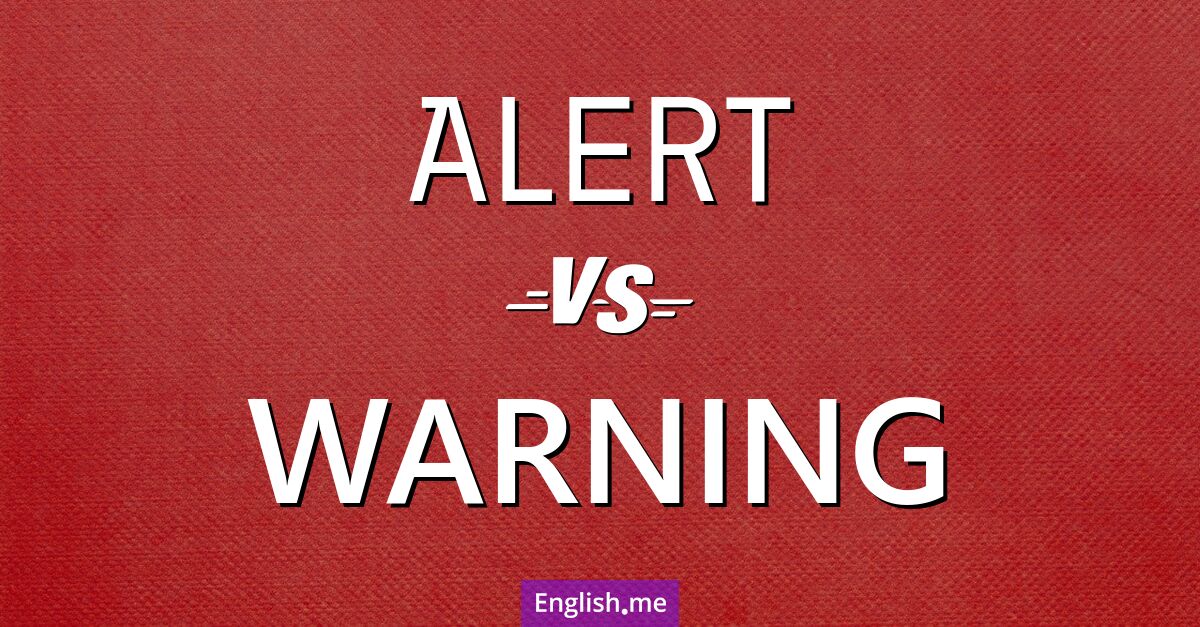"Alert" vs. "warning": key distinctions in meaning
Reviewed and edited by  Anwar Kareem 18/12/2024, 20:43
Anwar Kareem 18/12/2024, 20:43
English.me team member

 What is similar?
What is similar?
Both "alert" and "warning" are terms used to notify or inform someone about potential danger, risk, or a problem that requires attention. They are intended to draw awareness to situations where caution or immediate action may be necessary, and both can function as nouns and verbs in the English language.
 What is different?
What is different?
An "alert" often conveys immediate readiness or action, while "warning" emphasizes a cautionary statement or advice about potential danger. "Alert" can also mean a person's state of being vigilant, while "warning" pertains more to a communicated caution message.
 Which one is more common?
Which one is more common?

 Examples of usage
Examples of usage
Alert- The alarm sounded, putting everyone on alert.
- Stay alert while walking in unfamiliar areas.
- The weather service issued an alert about heavy rain.
- The sign served as a warning about the slippery floor.
- She ignored the doctor's warning about eating unhealthy food.
- There was a warning of high winds and power outages for the region.

 English
English español
español française
française italiano
italiano deutsche
deutsche 日本語
日本語 polski
polski česky
česky svenska
svenska Türkçe
Türkçe Nederlands
Nederlands